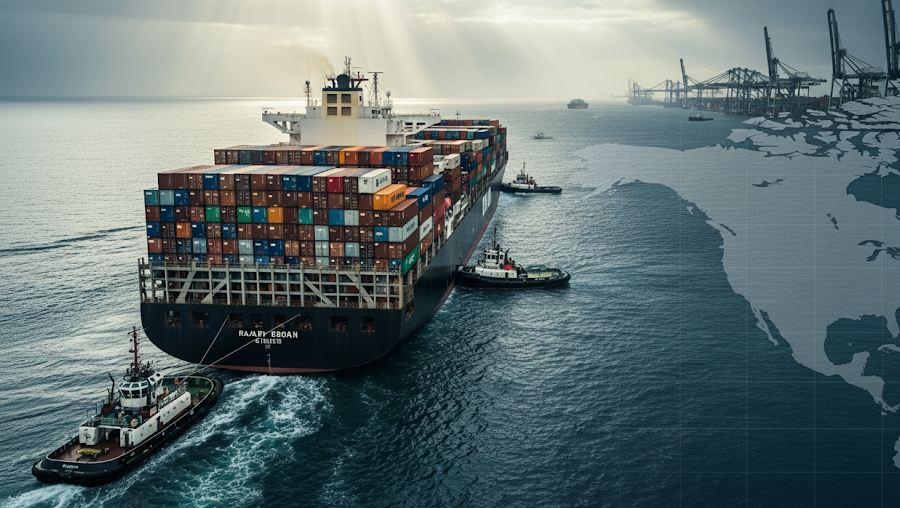U.S. Customs Inspection Update: FCL Must Be Transported by Designated Trucks
Release time:
2025-08-15
Published: August 15, 2025
On August 14, 2025 (local time), the U.S. Customs and Border Protection (CBP) released a new Trade Information Notice (TIN) announcing an upgrade to certain container inspection procedures.
Effective Date: August 25, 2025
Key Changes
Starting from the effective date, any Full Container Load (FCL) shipments at Los Angeles/Long Beach ports that are selected for inspection must be transported to the Centralized Examination Station (CES) by a trucking company designated by that CES.
Specific Rules:
Customs brokers and importers will no longer be allowed to choose their own trucking company — CES-designated carriers must be used.
This applies to inspections such as:
MET (Manifest Enforcement Team inspection)
AQI (Agricultural Quarantine Inspection)
While importers/brokers may still select the CES location, the drayage process will be fully controlled by CBP.
If cargo is ordered for exportation (re-export) after inspection, the return from CES to the terminal must also be handled by a CES-designated trucking company.
Not Affected:
Less than Container Load (LCL) shipments are not impacted by this regulation for now.
Background
According to CBP, there has been an increase in incidents where shipments were moved illegally to avoid inspection. To close this loophole, port authorities have decided to impose tighter control over the transport process between the port and the CES.
Impact on Importers & Freight Forwarders
Higher Transportation Costs: CES-designated trucking may be more expensive, and rates are non-negotiable.
Reduced Flexibility: Brokers and forwarders lose the ability to choose their own carriers.
Possible Delays: Scheduling may depend on the designated trucking company's availability.
Recommendations
Plan extra time for inspections to avoid delays in delivery.
Maintain close communication with your broker and freight forwarder to track inspection status.
For high-risk cargo types (e.g., agricultural products, food, sensitive goods), prepare for potential inspections in advance.
Conclusion
This change means FCL inspections at Los Angeles/Long Beach ports will now be subject to stricter and more centralized transportation control. Importers and freight forwarders should prepare operational adjustments to avoid costly delays and disruptions.
📌 Need to Ship from China to the USA?
Passionship International Logistics offers door-to-door, end-to-end China–USA shipping solutions:
FCL / LCL ocean, air, and trucking services
U.S. customs clearance & compliance guidance
Inspection handling & cost control strategies
Full shipment tracking for safe, on-time delivery
📞 Contact Passionship International Logistics today for the latest U.S. Customs inspection updates and a tailored shipping quote — save time, money, and stress on your cross-border logistics.
RELATED BLOG
Streamlining Cross-Border E-commerce Fulfillment
For individual sellers and small businesses operating on platforms like eBay and Shopee, managing international shipping can be a complex part of the sales process. Sending products from a supplier in China directly to a customer in the United States involves navigating logistics, customs, and cost-effective carrier options. This is where the role of a specialized eBay/Shopee logistics agent China to USA becomes valuable for many online merchants.
View Details









